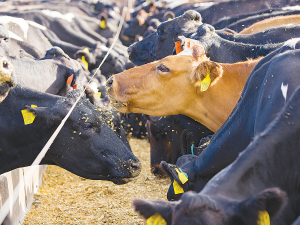An 'amaizing' season
It's been a bumper season for maize and other supplements in the eastern Bay of Plenty.
 When things are tight, rather than changing systems, look at what improvements you can make within the system.
When things are tight, rather than changing systems, look at what improvements you can make within the system.
I started my career in agriculture in Northland in 1982 as a consultant for the Ministry of Agriculture and Fisheries.
I worked in the same region as Hugh Kirton, a legend in dairy consulting. Wanting to be the kind of consultant Hugh had become, I asked him what I needed to do. He told me there were only two things: (1) learn from your best farmers and (2) learn from the best scientists. I have taken Hugh’s advice. Farmers and scientists have been my teachers.
During the 40 or so years of my career, I have seen farming go through good times and tough times. There is no doubt this last season has been tough for many farmers.
Rising interest rates have made tight margins even tighter and they hit in a season which was heavily impacted by extreme weather events. It looks like the coming season could be another tough one. One thing I have learnt over the past four decades is that the top farmers who get through tough times best are the ones who only make minor system changes. In other words, they stick with their knitting. These farmers stay the course and keep doing what they know works.
Data from DairyNZ’s Economic Farm Survey shows this quite clearly. Figure 1 shows the return on assets (ROA) from different farm systems. The average ROA of the low, medium, and high feeding systems ranges from 5.3% to 6.9%. However, the ROA of the medium (System 3) ranges from below zero to more than 25%. In other words, the difference between systems is far less than the difference between farms running the same system.
When things are tight, rather than changing systems, look at what improvements you can make within the system you are currently running to reduce the impact of forces largely outside of your control.
If you are running a system which feeds maize silage, consider fine tuning your management to:
The key points can be summarised as follows:
Feed silage when you will get the best response rate.
The more milk produced per kilogram of dry matter fed, the higher the return. I have also written extensively on this, and the summary is:
Fill short term feed gaps to keep cows milking. When supplements are used well, it is reasonable to expect response rates of 80-130gmsMS.
Increasing BCS from a 4 to 5 results in an extra 15kgMS and earlier calving the following season.
Keep maize silage costs to a minimum.
The cost of feed has a big impact on the profit received. Some ways farmers can reduce feed costs are:
Consider growing maize silage on your effluent paddocks. Research has shown maize grown on effluent paddocks needs little or no fertiliser. This could save around $1,600/ha.
Think carefully how you source your maize silage.
Home-grown maize silage is usually cheaper however remember that difference in price between home grown and bought in maize is the price you are willing to pay for risk.
I have just covered ways farmers can maximise their return from feeding maize silage. However, there are many factors within a farm system that impact profitability.
If you are concerned about your system, it is worth getting either a farm consultant or a top farmer who is running a system similar to yours to have a look at how you can improve physical and/ or financial performance. Alternatively, you can contact Wade Bell, Matt Dalley, or me through the Pioneer website (pioneer.co.nz).
Ian Williams is a Pioneer forage specialist. ContactThis email address is being protected from spambots. You need JavaScript enabled to view it.
The country’s 4200 commercial fruit and vegetable growers will vote from May 14 on a new HortNZ levy.
Meat processor Alliance Group is asking farmer shareholders to inject more capital in order to remain a 100% co-operative.
A vet is calling for all animals to be vaccinated against a new strain of leptospirosis (lepto) discovered on New Zealand dairy farms in recent years.
Dairy
Rural banker Rabobank is partnering with Food Rescue Kitchen on a new TV series which airs this weekend that aims to shine a light on the real and growing issues of food waste, food poverty and social isolation in New Zealand.
Telco infrastructure provider Chorus says that it believes all Kiwis – particularly those in the rural areas – need access to high-speed, reliable broadband.
OPINION: Talking about plant-based food: “Chicken-free chicken” start-up Sunfed has had its valuation slashed to zero by major investor Blackbird…
OPINION: Synlait's financial woes won’t be going away anytime soon.